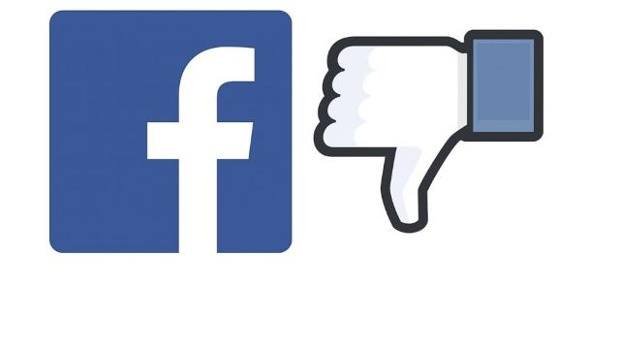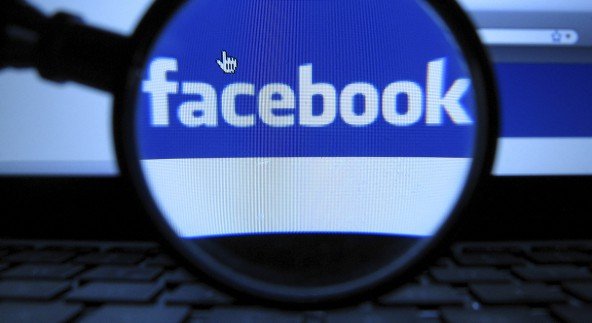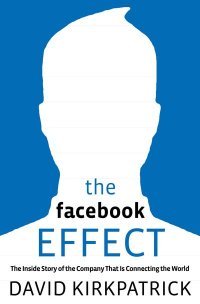Why Facebook's Proposed "Dislike" Button Is a Bad Idea
Facebook may finally be getting a button that lets you quickly express something beyond a “like.” In this commentary for WBUR's Cognoscneti, I say "Thumbs Down On Facebook’s ‘Dislike’ Button," and propose something else entirely.

Put Down The Camera, Pick Up The Fork

Food — you know that stuff you put in your mouth, chew and swallow to stay alive? — has officially jumped the shark.
 Remember when food was just something you ate?
Remember when food was just something you ate?
Food — you know that stuff you put in your mouth, chew and swallow to stay alive? — has officially jumped the shark.
I’m not exactly sure when it happened. Was it the molecular gastronomy craze of a few years ago, when chefs squirted popcorn and gumdrop foam over your duck breast, and suddenly preparing a meal became a science experiment?
Or was it the proliferation of celebrity cooking and food travel shows, wherein Anthony Bourdain and a crack team of Navy Seals went undercover in Bangkok to bring back a rare mangosteen, then kept it alive in captivity back in his New York City walk-in cooler. (Slight exaggeration, but not so far from the truth.)
You can read the rest of my column for WBUR's Cognoscenti here.
Looking For ‘Likes’ In All The Wrong Places
 (image: AP)Does "like" = "love"? Feel a little beat up by social media sometimes? My essay about this topic, "Looking For ‘Likes’ In All The Wrong Places: On Social Media And Self-Worth," appeared on WBUR's Morning Edition, Mon Feb 4. Here's an excerpt, and you can listen to the piece I recorded below.
(image: AP)Does "like" = "love"? Feel a little beat up by social media sometimes? My essay about this topic, "Looking For ‘Likes’ In All The Wrong Places: On Social Media And Self-Worth," appeared on WBUR's Morning Edition, Mon Feb 4. Here's an excerpt, and you can listen to the piece I recorded below.
 (image: AP)Does "like" = "love"? Feel a little beat up by social media sometimes? My essay about this topic, "Looking For ‘Likes’ In All The Wrong Places: On Social Media And Self-Worth," appeared on WBUR's Morning Edition, Mon Feb 4. Here's an excerpt, and you can listen to the piece I recorded below.
(image: AP)Does "like" = "love"? Feel a little beat up by social media sometimes? My essay about this topic, "Looking For ‘Likes’ In All The Wrong Places: On Social Media And Self-Worth," appeared on WBUR's Morning Edition, Mon Feb 4. Here's an excerpt, and you can listen to the piece I recorded below.
We all know the feeling.
We post something on Facebook, say our latest gastronomical experiment, or a scathing takedown of a celebrity making a fool of himself. Or, we let fly a clever tweet paired with a shrewd hashtag we’re certain is going to go viral.
Then, crickets. As in, no “likes,” no retweets, no nothing.
And how does all this make us feel? More insignificant than if we’d posted nothing at all.
That’s the power, and danger, of social media.
You can read the rest here. And listen below.
win free copies of FF&GG!
Two cool ways to win a copy of Fantasy Freaks and Gaming Geeks
Write a poem for wired.com/GeekDad/GeekMom
How do you win this coveted book, you ask? Give us a verse or two. Be it a free verse, a limerick, a sonnet, ahaiku, or a villanelle, on the geeky subject of your choosing (think “An Ode to Harry Potter” or the “Ballad of Gary Gygax”). Just put your entries in the comments webform here and we’ll choose the best five entries by Friday 11/19/10!Good luck, and geek on!
Sign up at Fiction Writers Review Facebook Page
Each week The Fiction Writers Review gives away several free copies of a book. All you have to do to be eligible for the weekly drawing is be a fan of their Facebook page. No catch, no gimmicks. Just a way to help promote books we love. Go here.
We all role-play now
[Note: Ethan Gilsdorf speaks at the Boston Public Library Wed, Oct 20. Other upcoming speaking engagements: Attleboro, MA: Oct. 29th (part of a Creature Double Feature tribute!); Brattleboro, VT: Nov 11th; Somerville, MA: Nov 13th; Cambridge, MA: Nov 15th; Providence, RI: Nov 18th; Burlington, MA: Nov 20th; Brooklyn, NY: Nov 22nd. More book tour info here]
We all role-play now
Those Dungeons & Dragons skills can come in handy in the world of Facebook
"The Social Network,'' Hollywood's latest box office king, charts Facebook's meteoric rise to near ubiquity. Few have not heard of the world-girdling website or been ensnared by its tendrils. In six years, Facebook has woven its way into the daily lives of some 500 million users.
Whether to check up on friends' exploits or play games like "Mafia Wars,'' we've grown accustomed to its promise of instant intimacy and, some might argue, its voyeuristic pleasures. Many cheer the way Facebook has democratized the flow of information; no longer top-down, news is now horizontally and virally dispersed. Others gripe that it's warped our idea of significance, making what I had for breakfast as important as the latest developments in the Mideast peace process. Facebook's vast and sticky web of connection has caused us all to re-evaluate what we mean by "friend.'' And, I suppose, "enemy'' as well.
Unforeseen social aftershocks such as these have rippled in Facebook's wake. Others have yet to be detected. But there's something else at work with Facebook. It's actually making role-players of us all.
 Role-playing? Like that conflict-resolution exercise your sales team endured last year? Or role-playing, as in Dungeons & Dragons - that strange and wondrous game I (and perhaps you) played back in the Reagan administration, rolling dice in a basement and slaying goblins and dragons and snarfing bowls of Doritos?
Role-playing? Like that conflict-resolution exercise your sales team endured last year? Or role-playing, as in Dungeons & Dragons - that strange and wondrous game I (and perhaps you) played back in the Reagan administration, rolling dice in a basement and slaying goblins and dragons and snarfing bowls of Doritos?
I'd argue all these experiences - including posting a witty Facebook update - are cut from the same role-playing cloth. We all share that desire to be someone else. To be better, stronger, faster; to appear more handsome, more clever, more attractive than our fleshy selves might ever be. "My, aren't we having fun?'' say our photos, snapped while we're half drunk and posted in a day-after haze. On my Match.com profile, I offer clues that might seduce. I suggest, in a whisper of pixels, "I am your ideal man.''
Not that role-playing is devious. It's a necessary counter to the way we've been civilized. While hidden behind the screen, we give ourselves permission to behave more dauntless or brazen than we'd allow in real life. We get to practice being the best version of the person we can be, or want to be.
That said, some role-playing experiences, especially offline ones, are deemed more acceptable than others. Dressing up as Tom Brady and painting your body blue and red for the big game? That's OK. Dressing as Gandalf and wearing a purple wizard hat for the big game? Not so much. Even as World of Warcraft and D&D and Harry Potter fandom have become passable in many circles, adults raiding Mom's closet for goofy clothes for "make-believe'' still remains verboten.
Except, of course, at Halloween. This odd holdover from pagan times is a socially acceptable way to bust loose. Here, costumes are fine. And playing "bad'' is encouraged. Being Dracula or Nurse Hottie for an evening can be instructive, even liberating.
The irony here is that even in our pre-Facebook existences, we've always engaged in day-to-day role-playing. At a wedding or cocktail party, on a first date or during a job interview, or when home for the holidays, we all dress the part and adopt another character: Brilliant or Well Adjusted, Stockbroker or Salesman, Happy Son or Perfect Mom. If you're not willing to play along and put on a mask, friends (and potential employers) will think, "What's wrong? Come on, get into character.'' Life is a dungeon crawl, full of monsters and opportunities to be on your mettle. Be prepared. Chin up.
So here's the rub. Eventually, we have to live up to these personas we've created. Many a first date has witnessed the crumbling of expectation's towers and spires. And despite my hundreds of Facebook friends, I wonder who I can really count on in times of trouble. When I really do need to be brave and slay that dragon.
Ethan Gilsdorf is author of Fantasy Freaks and Gaming Geeks: An Epic Quest for Reality Among Role Players, Online Gamers, and Other Dwellers of Imaginary Realms, now in paperback. More info on Gilsdorf and the book here.
Facing Facebook
 Facebook has become, for many, home sweet home on the Web. It has nearly blasted My Space and other social networking sites into obsolescence. When last checked, Facebook was after, Google, the world’s second most visited website.
Facebook has become, for many, home sweet home on the Web. It has nearly blasted My Space and other social networking sites into obsolescence. When last checked, Facebook was after, Google, the world’s second most visited website.
But more than just market share, Facebook has captured mind share. It’s astounding how, in the mere six years since its founding in February 2004, Facebook has become enmeshed in our daily routines. Get up, make coffee, check Facebook. Time for bed, but not before updating your status one last time. More than half of its 400 million users browse Facebook website each day, a jaw dropping visitor return rate. The average user now spends almost an hour per day there, scrolling news feeds, sending virtual gifts like flowers, and playing games like Farmville and Mafia Wars. Every leisure hour we spend on Facebook is one hour we’re not doing what we used to do with our downtime: reading a book, cooking a decent meal, consuming other media like TV, going for a walk in the woods (or at least to the 7-Eleven). If downtime even exists anymore.
As David Kirkpatrick writes in The Facebook Effect: The Inside Story of the Company That Is Connecting the World (Simon & Schuster, 372 pp., illustrated, $26), Facebook has led to ‘‘fundamentally new interpersonal and social effects.’’ That’s some understatement. Facebook has not only triggered semantic shifts like twisting the word “friend” into a verb and coining a new term, “unfriend.” (Personally, I think the friend rejection process should have been called “de-Face.”) It’s also redefined what we mean by friendship. As Kirkpatrick smartly notes, when Facebook was first dreamt up in a Harvard dorm room, it was envisioned as a tool to complement relationships with real world pals, not create ones with people you’d never met in the flesh. Now it’s used as much for self promotion and political activism — think of the Obama campaign’s mastery of the medium — as for networking and tracking down old flames. At last count I had 756 Facebook ‘‘friends,’’ and another 591 ‘‘fans’’ of my book. But how many of these friends or fans could I count on in a time of crisis? In cyberspace, no one can hear you cry (unless you’re Skyping).
The Facebook Effect is actually two books in one. One part is the exhaustively reported story of Facebook’s founding and meteoric rise to near ubiquity; the other is a thoughtful analysis of its impact. We first see Harvard roommates and fellow computer geeks Mark Zuckerberg, Eduardo Saverin, Dustin Moskovitz, and Chris Hughes transform two early projects into Thefacebook.com. One was called Course Match, a program that encouraged students to enroll in classes based on who else had signed up; ‘‘[i]f a cute girl sat next to you in Topology, you could look up next semester’s Differential Geometry course to see if she had enrolled in that as well.’’ The other was called Facemash, which took pairs of photos from Harvard’s online dorm facebooks and asked users to choose the ‘‘hotter’’ person. Both were essentially designed for hooking up, not Zuckerberg’s later and more lofty goal of making the world a more open place.
The narrative charts a nearly clichéd story of naive but idealistic college kids renting a house in Palo Alto in the summer of 2004 and immersing themselves in Red Bull-fueled, all-night programming binges. They incorporate their little project, at this point still called “Thefacebook.com” (the “the” gets dropped in 2005). The site experiences staggering membership growth: 5 percent per month. Facebook expands from Harvard to include other colleges, then by the fall of 2006, the rest of the world. Word gets out. Google, Microsoft, and Yahoo begin to drool at the incredible value of a community so willing to divulge its personal information. Being a senior editor at Fortune magazine, Kirkpatrick revels in recounting backroom negotiations with these tech companies and venture capitalists, each falling over the other to woo Facebook.
While the Machiavellian wheelings and dealings of Silicon Valley heavyweights might bore some readers, the interpersonal dirt shouldn’t. Kirkpatrick received full cooperation from Zuckerberg and many key players who sat for multiple interviews. We hear about personnel ousters, and lawsuits claiming Zuckerberg stole ideas from other social networking sites. While Kirkpatrick’s coziness with Facebook higher ups could have impaired his ability to be critical, we are thankfully given the occasional unflattering portrait of Zuckerberg. In one recreated scene, the newbie CEO is scolded by a colleague, ‘‘You’d better take CEO lessons, or this isn’t going to work out for you!’’
But far more interesting are the book’s efforts at social and behavioral commentary. Kirkpatrick raises the right questions, even if he doesn’t yet have all the answers. As the social network balloons --- Zuckerberg recently predicted he’d reach one billion worldwide users --- Kirkpatrick wonders if the site might make us not more global, but more tribal; not more individualistic but more conformist and vulnerable to marketing. The decentralization of information, relying on friends not institutions for news, seems like a positive democratic step. But in a world where, as The Facebook Effect observes, ‘‘everyone can be an editor, a content creator, a producer, and a distributor,’’ what is ‘‘news’’? Who are the gatekeepers? Users have already grumbled several times about Facebook’s disclosure of personal information to third parties. As recently as this May, Zuckerberg once again backpedaled for misusing user data, issuing more of an “oops” than an apology: “We just missed the mark,” he wrote. Facebook has since implemented new and clearer privacy settings.
If Facebook is warping our sense of privacy, at least it’s a community based on self-disclosure: You have to reveal the ‘‘real’’ you to join, and your identify is vetted by real friends. Most shenanigans found in anonymous online communities --- behaviors like flaming, griefing, and other anti-social quirks of online games and message boards ---aren’t tolerated. If someone becomes obnoxious, you can always defriend him. Not that there isn’t some degree of role-playing in all those clever status updates. For don't we all want to be seen as clever and ironic, witty and hip? To put our best online foot and face forward? Still, as Facebook increasingly melds with our selves, one can't help but question if it's become too easy to play the roles of voyeur, exhibitionist, and narcissist.
Ethan Gilsdorf is the author of Fantasy Freaks and Gaming Geeks: An Epic Quest for Reality Among Role Players, Online Gamers, and Other Dwellers of Imaginary Realms, which comes out in paperback in September. You can reach him and get more information at his website /.